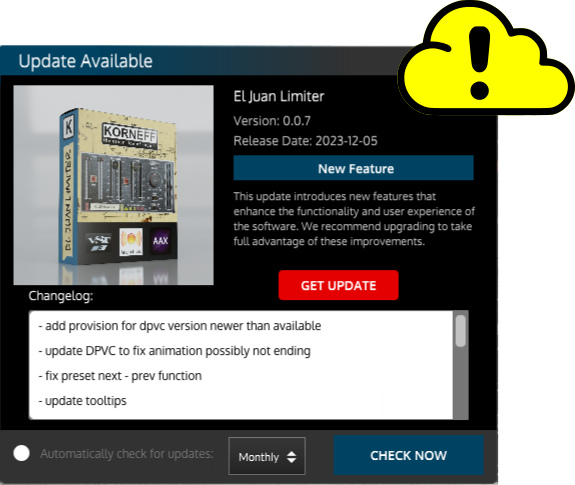Simplest Way to Implement Server class, server-side?
-
@d-healey Thank you for your continued kindness in sharing your work for others to benefit from.
-
C clevername27 has marked this topic as solved on
-
@d-healey I'm reading about the GIT API. Could you pls tell me if your plugin is using username/password or a token to access your repository?
-
@clevername27 Neither, when the code is open source there's no place to hide credentials. The Codeberg repo is public so I can just access the end point as I could in a web browser.
-
@clevername27 I've worked with some of the smartest people in the industry and what always amazes me is the simplicity of solution.
Do you really need a server, a operation system, a custom mysql database controlled with a php server?
I started using versions.json files for a lot of stuff and try to be as low tech as possible. I would just create a file like this:
{ latest: { version: 1.8, download: 'https://example.com' } old_version: [ { version: 1.7, download: 'https://example.com' }, { version: 1.6, download: 'https://example.com' }, { version: 1.5, download: 'https://example.com' } ] }You can then create the simplest python or node server serving this or to be even more cheap put it in a GitHub repository and query the raw version of that file.
You can build off that example using GH Actions custom scripts etc but in the core this is the solution that I am using for years.
-
@oskarsh said in Simplest Way to Implement Server class, server-side?:
@clevername27 I've worked with some of the smartest people in the industry and what always amazes me is the simplicity of solution.
Do you really need a server, a operation system, a custom mysql database controlled with a php server?
I started using versions.json files for a lot of stuff and try to be as low tech as possible. I would just create a file like this:
{ latest: { version: 1.8, download: 'https://example.com' } old_version: [ { version: 1.7, download: 'https://example.com' }, { version: 1.6, download: 'https://example.com' }, { version: 1.5, download: 'https://example.com' } ] }You can then create the simplest python or node server serving this or to be even more cheap put it in a GitHub repository and query the raw version of that file.
You can build off that example using GH Actions custom scripts etc but in the core this is the solution that I am using for years.
@clevername27 yep - this is the way we do it - a simple json file that names the current version, and lists the changes that are included in it...
-
This post is deleted! -
@oskarsh Well said.
-
@Lindon Agreed.
-
I ended up making a custom plugin for WordPress that logs my version data.
The endpoint outputs json with detailed info.
And then I display the data on an update panel.

-
@oskarsh said in Simplest Way to Implement Server class, server-side?:
I've worked with some of the smartest people in the industry and what always amazes me is the simplicity of solution.
Edit: "I've worked with some of the most intelligent people in the industry and what always amazes me is the simplicity of solution."
